In the world of wellness, many of us are trying to do better — to eat cleaner, support our bodies naturally, and make empowered choices. But what happens when healthy eating becomes a source of stress, fear, or obsession?
This is where orthorexia can quietly sneak in — a lesser-known but increasingly common struggle in health-conscious spaces.
Let’s talk about it, without judgment.
What Is Orthorexia?
Orthorexia nervosa isn’t officially recognized in the DSM (Diagnostic and Statistical Manual of Mental Disorders), but it’s a term many holistic and functional practitioners use to describe:
“An obsession with eating foods that one considers healthy, clean, or pure — to the point that it interferes with emotional, mental, or physical wellbeing.”
Unlike other eating disorders, orthorexia isn’t driven by weight loss. Instead, it’s about the purity of food — where individuals may become overly focused on avoiding “toxic,” “unclean,” or “unsafe” ingredients.
What Might It Look Like?
Orthorexia can show up in subtle ways:
- Anxiety or guilt after eating a “non-clean” food
- Avoiding social gatherings due to food fears
- Spending large amounts of time researching ingredients or food sourcing
- Labeling foods as “good” vs. “bad” with black and white thinking- no grey area
- Compulsive need to “detox” or “cleanse” after eating certain foods
- Gradually shrinking your list of “safe” foods
Even in holistic or healing communities, these behaviors can be praised as discipline or dedication — but they can also become a hidden form of self-harm.
Why It Happens (Through a Functional Lens)
Many people who struggle with orthorexia are coming from a place of real pain — chronic illness, autoimmune conditions, gut dysfunction, trauma around food, or feeling let down by conventional medicine.
They’re looking for control. Safety. A sense of healing.
And sometimes, obsessing over food becomes the only way to feel like you’re doing something right.
But from a functional perspective, we know healing isn’t just about what you remove from your plate — it’s also about what you add to your life:
- Joy
- Flexibility
- Rest
- Connection
- Freedom
Signs You May Need Support
If your food choices are making your world feel smaller instead of more vibrant, it may be time to talk to someone.
This doesn’t mean your efforts toward wellness are wrong or invalid. It simply means your nervous system, hormones, and relationship with nourishment may need healing too.
Orthorexia isn’t a moral failure. It’s a survival strategy that worked — until it didn’t.
A More Balanced Approach
At Modern Medicine, we help people heal through root-cause care — supporting gut health, hormones, autoimmunity, and nutrient absorption.
But we also work to heal people’s relationship with food.
That means:
- Testing, not guessing — so you don’t have to restrict blindly
- Nourishing, not punishing — the gut, the brain, the nervous system
- Releasing shame around food choices — especially when you’re doing your best
- Inviting grace back into wellness
There’s a difference between being empowered by food and being imprisoned by it.
If you see yourself in any of this — please know, you’re not alone. So many people start their healing journey with the best of intentions, only to find themselves tangled in rules and rigidity.
Let’s rewrite that story together. With compassion. With function. With freedom. ???? We can’t wait to support you!
Jade Green, TNC, CHHC

